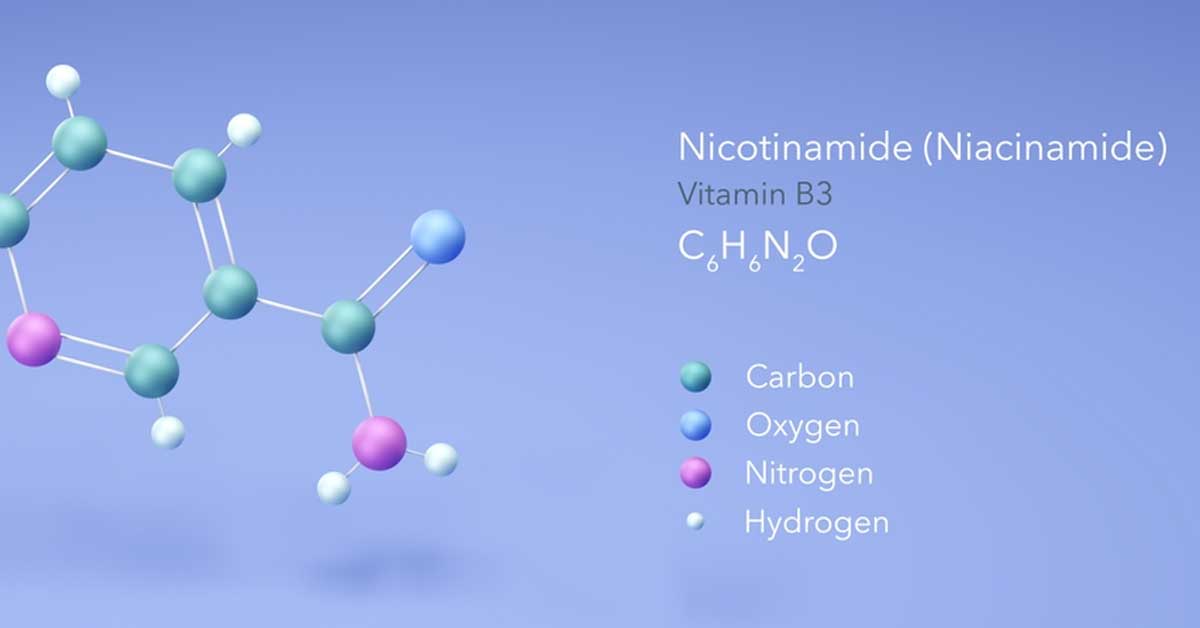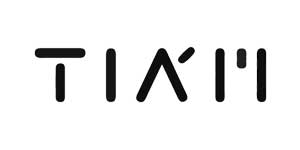Niacinamide in Skincare: Everything You Need to Know

Nicotinamide, often known as niacinamide, is a form of vitamin B3. It’s essential for maintaining good health.
Dive into the world of nicotinamide, a nutrient that quietly but crucially supports numerous bodily functions. Found in various food sources and available as a dietary supplement, this form of vitamin B3 is a powerhouse of health benefits that often goes unnoticed.
Beyond its vital role in energy metabolism and enzyme function, nicotinamide has gained attention for its potential in skincare, where it helps support a healthy complexion. Its impact on overall well-being makes it a topic worth exploring, whether you’re seeking to enhance your health routine or simply curious about the nutrients your body needs. Get ready to uncover the importance of nicotinamide and how it can contribute to a balanced, vibrant lifestyle.
What Is Nicotinamide
Nicotinamide is a form of vitamin B3 that plays a crucial role in the health of our cells and metabolism. It’s an essential nutrient, which means our bodies can’t make it, and we need to get it from our diet. Nicotinamide is a key player in the production of energy in the body and repairing DNA. It also supports skin health and may help with certain skin conditions.
Chemical Structure
The chemical structure of nicotinamide is both simple and vital for its function in the body. Let’s break it down:
- Nicotinamide, also known as niacinamide, is a derivative of niacin.
- It has a pyridine ring, a six-membered ring with one nitrogen atom.
- Attached to this ring is an amide group, which replaces the acid group in niacin.
This structure allows nicotinamide to participate in redox reactions. These reactions are central to energy production and cellular metabolism. Here’s a quick look at its molecular composition:
| Chemical Formula | Molecular Weight | Chemical Properties |
|---|---|---|
| C6H6N2O | 122.13 g/mol | Water-soluble, stable to heat and light |
Nicotinamide is a part of two crucial coenzymes in the body: NAD (nicotinamide adenine dinucleotide) and NADP (nicotinamide adenine dinucleotide phosphate). These coenzymes are involved in over 200 biochemical reactions!
Sources Of Nicotinamide
To maintain good health, it’s important to consume enough nicotinamide. Luckily, it’s found in a variety of foods:
- Meat: Chicken breast, turkey, and beef liver are rich in nicotinamide.
- Fish: Tuna, salmon, and mackerel provide good amounts.
- Whole grains: Brown rice, barley, and whole wheat products contain this nutrient.
- Legumes: Peanuts, green peas, and lentils are also sources.
- Seeds and nuts: Sunflower seeds and almonds.
- Vegetables: Mushrooms, green leafy vegetables, and avocados.
For those who struggle to get enough from food, supplements are available. However, whole foods are the best sources since they offer other nutrients too. Here’s a simple table of common sources and their nicotinamide content:
| Food Source | Nicotinamide Content |
|---|---|
| Chicken Breast (100g) | 14.8 mg |
| Grilled Salmon (100g) | 8.5 mg |
| Whole Wheat Bread (1 slice) | 0.5 mg |
| Roasted Peanuts (1 oz) | 3.8 mg |
Eating a varied diet ensures not only adequate nicotinamide intake but overall nutritional balance. Remember, balance is key to a healthy life!
Health Benefits
Nicotinamide, also known as niacinamide, is a form of vitamin B3 that plays a crucial role in maintaining overall health. Its impact spans various bodily functions, with notable benefits for skin health and cellular functions. This essential nutrient offers support at a molecular level, contributing to the well-being of individuals in several ways.
Skin Health
The benefits of Nicotinamide for skin are well-documented and widely acclaimed. Its regular application or consumption can lead to visible improvements in skin texture and tone. Here are some key benefits for skin health:
- Reduces Inflammation: Nicotinamide has anti-inflammatory properties that help soothe irritated skin.
- Controls Sebum: It regulates oil production, beneficial for those with acne-prone skin.
- Improves Skin Barrier: It strengthens the skin’s protective barrier, keeping it hydrated and resilient.
- Diminishes Hyperpigmentation: Nicotinamide is known to reduce dark spots and even out skin tone.
In addition to these points, research suggests that Nicotinamide may also help with fine lines and wrinkles, giving the skin a more youthful appearance.
| Skin Concern | Effect of Nicotinamide |
|---|---|
| Acne | Reduces severity and frequency of breakouts |
| Oiliness | Controls excess sebum production |
| Dryness | Enhances moisture retention |
| Signs of Aging | Minimizes the appearance of fine lines |
Cellular Functions
Nicotinamide is a powerhouse when it comes to supporting cellular functions. It is a component of NAD+, a coenzyme present in all cells and vital for energy production. The health benefits at the cellular level include:
- Boosts Energy Production: As part of NAD+, Nicotinamide is essential for converting food into energy.
- Supports DNA Repair: It aids in the maintenance and repair of DNA, promoting cellular health.
- Regulates Cell Signaling: Nicotinamide plays a role in cell communication, crucial for healthy cell function.
- Enhances Longevity: Some studies suggest it may influence longevity by improving cellular resilience.
The table below highlights the cellular processes influenced by Nicotinamide:
| Cellular Process | Role of Nicotinamide |
|---|---|
| Energy Metabolism | Participates in metabolic reactions to produce ATP |
| Genome Stability | Contributes to DNA repair mechanisms |
| Stress Response | Supports cells in managing oxidative stress |
| Enzyme Activity | Acts as a precursor for enzymes involved in cellular reactions |
Nicotinamide And Aging
Nicotinamide plays a key role in our body’s health. It helps our cells work right and keeps our skin looking young. As we get older, our body’s nicotinamide levels drop. This can lead to signs of aging. But, there’s good news. By understanding nicotinamide, we can fight these aging signs.
Role In Longevity
Nicotinamide is a form of vitamin B3. It is important for keeping our cells healthy. Over time, our cells face damage from things like sunlight and pollution. Nicotinamide helps fix this damage. This can make our bodies stronger and may help us live longer. Here’s how nicotinamide works:
- Repairs DNA: It helps fix our DNA when it gets damaged. This keeps our cells young.
- Boosts Energy: It helps our cells make more energy. This keeps us feeling strong.
- Reduces Inflammation: It fights swelling in our body. This can prevent diseases.
Studies show that nicotinamide can help with many things. It can improve skin health and lower the risk of some diseases. But, we need more research to fully understand its role in longevity.
Anti-aging Products
Many skin care products contain nicotinamide. They claim to reduce wrinkles and keep skin looking young. Here’s what to know about these products:
- Skin Creams: Many creams have nicotinamide. They can reduce wrinkles and make skin smoother.
- Serums: These are light liquids that go deep into the skin. They can brighten the skin and reduce age spots.
- Sunscreen: Some sunscreens have nicotinamide. It can protect the skin from sun damage.
When choosing a product, look for one with nicotinamide high on the ingredient list. This means it has a good amount of it. But, remember, not all products work the same for everyone. It’s best to try a small amount first to see how your skin reacts.

Credit: www.sciencedirect.com
Dosage Recommendations
Understanding the right amount of nicotinamide to take is key for its benefits. Let’s explore how much you might need daily and the forms it comes in. This part of our guide will focus on dosage recommendations to help you make informed choices.
Daily Intake
Getting the correct daily intake of nicotinamide is crucial for its effectiveness. While individual needs may vary, general guidelines suggest a range for adults. It’s essential to stay within safe limits to avoid any possible side effects. Here are some points to consider:
- Adults typically require between 14 to 18 milligrams (mg) per day.
- Pregnant or breastfeeding women may need more, around 17 to 20 mg daily.
- Higher doses may be prescribed for certain medical conditions, but only under a doctor’s guidance.
For a clearer picture, here’s a simple table showing recommended daily amounts:
| Group | Daily Recommended Intake |
|---|---|
| Adult Men | 16 mg |
| Adult Women | 14 mg |
| Pregnant Women | 18 mg |
| Breastfeeding Women | 17 mg |
Note: Always consult with a healthcare professional before starting any new supplement, especially if you have health concerns or conditions.
Supplement Forms
Nicotinamide is available in various forms, each with its own benefits. The choice of form can depend on personal preference, ease of use, and specific health needs. Here are some common forms in which nicotinamide supplements are available:
- Capsules: Easy to swallow and often the preferred choice for those who don’t like the taste of powdered supplements.
- Tablets: May come in chewable or sublingual forms for quick absorption.
- Powders: Can be mixed with liquids for those who prefer a drinkable supplement.
- Liquids: Useful for people with swallowing difficulties or who require customizable dosages.
While selecting a form, consider the concentration of nicotinamide in each serving. This will help ensure you’re getting the correct dosage. Also, look for high-quality brands that offer pure and third-party tested products. Remember, the goal is to support your health, so choosing a reputable supplement is worth the effort.
Tip: Check for additional ingredients that may enhance the supplement’s efficacy or address specific health goals.
Potential Side Effects
Exploring the benefits of Nicotinamide is crucial, but it’s equally important to be aware of its potential side effects. Nicotinamide, a form of Vitamin B3, is known for its role in various bodily functions and potential health benefits. Still, like any supplement, it can cause adverse reactions in some individuals. Let’s delve into the side effects that people might experience, ranging from common to rare, to ensure informed decisions about its use.
Common Reactions
While Nicotinamide is generally considered safe when taken in recommended doses, some individuals might experience mild side effects. Awareness of these common reactions can help users identify and manage them effectively. Here are the most frequently reported ones:
- Mild gastrointestinal issues: This can include symptoms such as nausea, vomiting, or diarrhea.
- Flushed skin: A feeling of warmth or redness of the skin, often accompanied by a tingling sensation.
- Dizziness: Some users report feeling lightheaded or dizzy after taking Nicotinamide.
- Headaches: A common side effect that can range from mild to moderate in intensity.
These reactions are often temporary and usually subside as the body adjusts to the supplement. If they persist or worsen, it’s advisable to consult a healthcare provider.
Rare Complications
While uncommon, there are more serious side effects associated with Nicotinamide that users should be mindful of. These rare complications can have significant health implications and require immediate medical attention. Here’s a brief overview:
| Side Effect | Description | Recommended Action |
|---|---|---|
| Allergic Reactions | Signs include hives, itching, or swelling, particularly of the face, lips, or throat. | Seek emergency help as it could be a sign of a severe allergic reaction. |
| Liver Toxicity | High doses may lead to liver problems, signaled by jaundice or dark urine. | Discontinue use and contact a healthcare provider immediately. |
| Irregular Heartbeat | Some may experience changes in heart rhythm, a condition that requires prompt medical evaluation. | Consult a healthcare professional for a thorough assessment. |
These serious side effects are rare when Nicotinamide is taken as directed. However, understanding these potential risks is vital for anyone considering this supplement. Always follow dosage recommendations and speak with a healthcare provider before starting any new supplement regimen.
Nicotinamide Vs. Niacin
Nicotinamide and Niacin are essential nutrients, often mixed up. Both belong to the Vitamin B3 family. They are vital for our health but in different ways. This section digs into Nicotinamide vs. Niacin, highlighting their similarities and differences.
Similarities
Nicotinamide and Niacin share some common ground:
- Both are forms of Vitamin B3.
- They are crucial for converting food into energy.
- Important for skin health.
- Support brain function.
Despite their differences, their core role in our health is significant. They work in our bodies to keep us energized and healthy. Both are found in various foods and supplements. People often use them to improve health. Let’s look at a table to understand their shared benefits better:
| Aspect | Nicotinamide | Niacin |
|---|---|---|
| Forms of Vitamin B3 | Yes | Yes |
| Supports energy production | Yes | Yes |
| Improves skin health | Yes | Yes |
| Enhances brain function | Yes | Yes |
Both nutrients play a crucial role in maintaining good health, making them important in our diet.
Differences
While Nicotinamide and Niacin share similarities, their differences are key:
- Nicotinamide does not cause skin flushing, unlike Niacin.
- Niacin can lower cholesterol, which Nicotinamide cannot do.
- Nicotinamide is often used in skin care products. Niacin is less common.
- Niacin might cause side effects like itching or tingling. Nicotinamide is gentler.
These differences make each suitable for different health needs. For example, someone looking to improve their cholesterol might choose Niacin. Someone focused on skin health might pick Nicotinamide. Below is a quick reference list:
- Nicotinamide is kinder to your skin.
- Niacin helps with cholesterol.
- Nicotinamide fits better in skincare routines.
- Niacin can cause tingling; Nicotinamide does not.
Choosing between them depends on your health goals. Each has unique benefits that cater to different needs. Knowing these differences helps make informed choices for better health.
Nicotinamide In Skincare
Nicotinamide, a form of vitamin B3, has gained popularity in skincare for its impressive benefits. It helps improve the skin’s barrier, reduces inflammation, and can lighten dark spots. This powerhouse ingredient works well for various skin types and concerns. Let’s dive into how it functions when applied to the skin.
Topical Applications
Nicotinamide, when used topically, can be a skin savior. It’s known for its versatility and can address multiple skin issues. Here’s why it’s a favorite in creams, serums, and lotions:
- Moisture Retention: It strengthens the skin’s barrier, reducing water loss and keeping the skin hydrated.
- Oil Regulation: Good news for oily skin! Nicotinamide can help regulate oil production, leading to fewer breakouts.
- Soothing Effect: It’s calming for skin that’s easily upset. Redness and irritation take a back seat with regular use.
- Spot Fading: Dark spots look lighter over time, giving a more even skin tone.
- Reduces Fine Lines: It helps in softening the look of fine lines for more youthful-looking skin.
Studies back these benefits, proving nicotinamide’s role in maintaining healthy, resilient skin. Its inclusion in daily skincare routines is a smart move for anyone.
| Concern | Benefit of Nicotinamide |
|---|---|
| Dry Skin | Improves hydration |
| Acne | Regulates oil and reduces inflammation |
| Aging Skin | Minimizes fine lines and wrinkles |
| Hyperpigmentation | Lightens dark spots |
Formulations To Consider
Choosing the right nicotinamide formulation is key to getting the best results. Here are some product types to consider:
- Serums: Lightweight and potent, serums are a great way to deliver a high concentration of nicotinamide to the skin.
- Creams: For those with dry skin, a cream can offer the hydrating benefits of nicotinamide along with other moisturizing ingredients.
- Sunscreens: Nicotinamide can boost the skin’s defense against UV damage when included in sunscreens.
It’s also mixed with other skin-loving ingredients like hyaluronic acid or ceramides for added benefits. When shopping for nicotinamide products, look for these combinations:
- Nicotinamide + Hyaluronic Acid: For deep hydration
- Nicotinamide + Ceramides: To strengthen the skin barrier
- Nicotinamide + Zinc: To control oil and reduce acne
Remember, nicotinamide works well with most other skincare ingredients. It’s safe to use in the morning and at night. But, as with any new skincare product, start slow. This way, you can see how your skin responds. With the right formulation, nicotinamide can help reveal healthier, more radiant skin.

Credit: ginkgohome.com
Research And Studies
Nicotinamide, a form of vitamin B3, has caught the eye of the scientific community. Research on this nutrient reveals potential health benefits that may impact how we approach wellness. Studies delve into its effects on aging, skin health, and the body’s overall function. This section explores the latest insights from scientific research and considers where future studies may lead.
Recent Findings
Exciting developments in nicotinamide research have emerged, painting a promising picture for future health applications. Key highlights include:
- Cellular Health: Nicotinamide has been shown to support cell repair and DNA integrity, suggesting a role in slowing the aging process.
- Skin Protection: As a skincare ingredient, it helps protect against UV damage, reducing the risk of skin cancers and premature aging.
- Metabolic Benefits: Studies indicate improvements in metabolism and potential protective effects against metabolic disorders when using nicotinamide.
Researchers have also explored nicotinamide’s role in neurological health, with early findings suggesting it may support brain function and protect against neurodegenerative diseases. These studies offer a glimpse into the compound’s versatile potential.
| Area of Research | Key Findings |
|---|---|
| Anti-Aging | Promotes longevity and cellular repair. |
| Skin Health | Reduces signs of aging, improves skin barrier. |
| Metabolism | May enhance energy production, reduce risk of obesity. |
Future Directions
Looking ahead, the trajectory of nicotinamide research is ripe with potential. Upcoming areas of interest include:
- Dosage Exploration: Determining optimal dosages for therapeutic effects without adverse outcomes.
- Long-Term Impact: Longitudinal studies to assess the long-term benefits and safety of sustained nicotinamide use.
- Combination Therapies: Investigating how nicotinamide works with other nutrients or medications for enhanced health outcomes.
Future studies aim to unlock the full scope of nicotinamide’s benefits, particularly in personalized medicine. Scientists are also keen on exploring its preventive potential against a range of diseases, from diabetes to cancer. The goal is to substantiate the exciting preliminary findings with robust clinical evidence, paving the way for new health solutions grounded in science. With each study, our understanding of nicotinamide expands, bringing us closer to harnessing its full potential for health and longevity.

Credit: www.amazon.com
Frequently Asked Questions
What Is Nicotinamide Used For?
Nicotinamide, a form of vitamin B3, is used to prevent and treat niacin deficiency. It’s also utilized in skincare products to reduce inflammation and improve skin health.
Can Nicotinamide Help With Anti-aging?
Yes, Nicotinamide can help with anti-aging by improving skin elasticity and reducing fine lines. It boosts skin cell regeneration and repair, leading to a more youthful complexion.
Is Nicotinamide Safe For Daily Use?
Nicotinamide is generally safe for daily use when applied topically or taken as a dietary supplement. However, it’s important to adhere to recommended dosages to avoid potential side effects.
Does Nicotinamide Cause Any Side Effects?
In recommended amounts, Nicotinamide is usually well-tolerated. High doses may cause mild side effects like nausea and headaches. Consult a doctor if you experience any adverse reactions.
Conclusion
Exploring the benefits of nicotinamide has been enlightening. This vitamin B3 form offers much, from skin health to energy production. Remember, always consult a healthcare provider before starting new supplements. Nicotinamide shows promise, but balance and proper guidance are key.
Let’s keep learning about ways to support our well-being. Embrace a healthy lifestyle, and consider how nicotinamide might fit into it. Your journey to better health continues. Stay curious and informed.
















